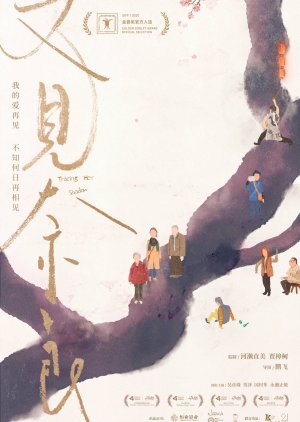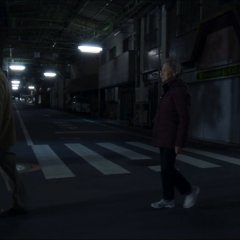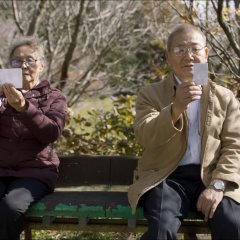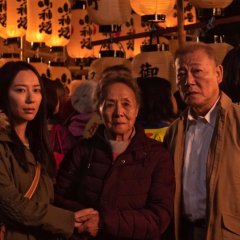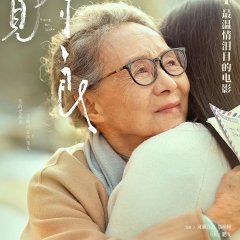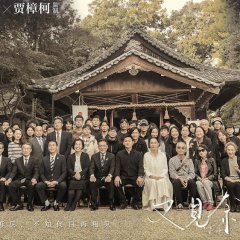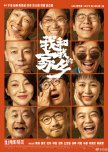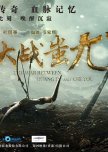In 2005, some Japanese orphans raised by Chinese parents and orphans’ descendants live in Nara, Japan. Back in the 1990s, these orphans were returned to Japan from China, but it was difficult for them to accommodate to the Japanese life due to differences in languages and ideas. Ozawa’s father is a Japanese orphan who chose to stay in China. As a second generation of a Japanese orphan, Ozawa decided to return to Japan when she was 26. She was diligent and hardworking, trying to assimilate into Japanese society. But one day, Mrs. Chen changed her life. Mrs. Chen is an adoptive mother of Japanese orphans and also a benefactor who raised Ozawa’s father. Her foster daughter Li Hua returned to Japan to seek her biological parents but, ever since she left in 1996, Mrs. Chen had not heard a word from her. The worried Mrs. Chen decided to go to Japan to find Li. Ozawa had to help Mrs. Chen. Yet, Ozawa thought that all she needed to do was to show Chen around for a couple days, and then Mrs. Chen would soon return to China. But grandma kept looking. One day the duo met Kazuo, a retired policeman, in a restaurant. Kazuo was deeply moved by their story and wanted to help them to find the left-behind orphan Li Hua. Since they did not know Li’s Japanese name and had little information about her, the search moved in a slow pace. Through messages and photographs, they searched from urban cities to rural areas, from factories to workshops. Finally, the truth of war-displaced Japanese orphans surfaced. Ozawa and Kazuo were moved by the love between the two people from the two countries. The search for Li Hua became a journey to search for their own values. Edit Translation
- English
- magyar / magyar nyelv
- dansk
- Norsk
- Native Title: 又见奈良
- Also Known As: You Jian Nai Liang , Tracing Her Shadow , 再会の奈良
- Screenwriter & Director: Song Peng Fei
- Genres: Historical, Drama, War
Cast & Credits
- Wu Yan ShuChen Hui MingMain Role
- Ying ZeShimizu Hatsumi/Xiaoze/Xiao Ze [Second Generation]Main Role
- Kunimura JunYoshizawa KazuoSupport Role
- Nagase MasatoshiTakeshita [Gardener]Support Role
- Akiyama Shintaro[Xiao Ze's ex-boyfriend]Support Role
- Gozu TakeoTakakura AkiraSupport Role
Reviews

Beautifully delicate movie about a sad, touching historical event
This "Seeing Nara Again" aka "Tracing Her Shadow" is based on a true, sad and very touching historical event: the "war orphans" left behind by the Japanese in formerly occupied parts of China at the end of WWII, raised by Chinese foster parents and then, from 1972 (when China and Japan re-established official relations), in part migrated to Japan in search of their biological families. That's the premise of this movie, where a Chinese granma, Chen nana (masterfully portrayed by Wu Yan Shu aka Estelle Wu, whose performance in the lovely drama "When We Were Young" had also really impressed me, BTW) flies to Japan in search of her Japanese foster daughter, who's moved back to Japan years ago and suddenly stopped writing. In her search, the granma is helped by Hatsumi / Xiao Ze, a young woman, half-Japanese and half Chinese, daughter of another war orphan, and by Yoshizawa-san, a retired Japanese policeman (and kudos to the respective actors, Ying Ze and Kunimura Jun, who were also really good).What follows is a beautifully delicate movie, filled with many meaningful scenes that illustrate both the differences between China and Japan (to name but one: when the granma sits at the kotatsu the first night, but then in following scenes we see her sitting in a plastic chair - 'cause of course she wouldn't be used to sitting on the floor!) and also the hardships and troubles these war orphans (but also Hatsumi!) had to face - all done in a very delicate way, not force-fed down the viewers' throats as is the case of many Western productions, but rather suggested in an inobtrusive manner that adds greatly to the movie's value (another example of this lovely approach could be in the few funny scenes that lighten up a bit what is of course a pretty sad story - take for example the hilarious scene at the butcher's, or when our trio trick the paramedics into leaving the ambulance unattended so that they could answer the phone).
I really would've given this movie a "perfect 10" grade, weren't it for the next-to-last scene (the one preceding the last one with the beautiful enka song).
WARNING: HUGE SPOILER AHEAD!
I really didn't understand why Hatsumi and Yoshizawa-san would give granma Chen false hope knowing that there was none...it felt cruel and really out of place to me.../.___.\
Apart from that scene, though, this is a real masterpiece and I therefore give it a well-deserved "9"!
Wholeheartedly recommended!

